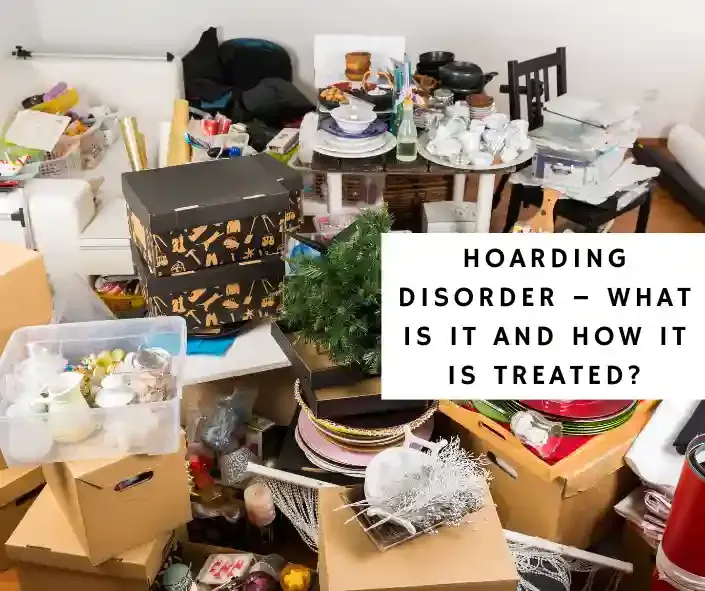

Hoarding Disorder – What is it and how is it treated?
Wondering if you have a hoarding disorder? What exactly does this mean?
A hoarding disorder affects around 2-6% of the population and can be described as a prolonged difficulty in getting rid of, or parting with certain possessions. As the objects are seen as necessities by the person with hoarding problem, they feel that these items must be kept – and will likely end up accumulating a lot of things. When forced to throw away the objects, they can feel very upset and distressed.
What types of items are collected?
It can be any item, regardless of value or sentiment that may be collected. This might include books, magazines, clothing, household goods, and newspapers.
As it is viewed as a compulsion to gather and store these things, this condition is quite often confused with obsessive compulsive disorder
What can be the effect of a hoarding disorder?

Depending on what a person believes to be a necessity to purchase or hold on to, hoarding can range from minor to severe. As their living environment gets fuller, it may quickly become very cluttered with goods and eventually impair their capacity to walk around easily, find important documents and, in some situations, affect their ability to sleep soundly.
Any available space in the house, including worktops, beds, stairs, sinks, and stoves, may be used for storage when the number of possessions and clutter gets out of hand. When the inside of the home is full, this may even extend to the outside. There may be a build-up of items on the home’s outside, including inside their car, gardens, and garages. The person might not recognise this as a problem, which makes getting help difficult.
What are the symptoms of a hoarding disorder?
Hoarding can start at any age and is noticeable when a person starts to accumulate and save a lot of things, even ones that seem useless or unimportant. If you ask the person to throw them away, they can become upset. As a person hits middle age, the symptoms almost always worsen and could perhaps be harder to manage.
The following may be indications of hoarding:
- overly purchasing excessive stuff in areas with limited storage space.
- A strong desire to keep these things and grief when forced to dispose of them.
- collecting to the point of clutter, which limits available space and compromises living conditions.
- Other signs and symptoms could include difficulties planning and organising, indecision, and procrastination. An important point to note is that hoarding is not the same as collecting.
People that collect things typically concentrate on a specific genre, like stamps, coins, or antiques with worth. They are typically well-organised, uncluttered, and free of the distress that hoarding causes and is usually a hobby for them.
Treatment options for hoarding disorder
Those with a hoarding disorder often also struggle with other mental health problems. Obsessive compulsive disorder, depression, and anxiety disorders are a few examples of this. In fact, approximately 75% of hoarders also have an anxiety condition and 50% have signs of depression present.
It is important that a professional does a mental health assessment and evaluation. This may also involve a psychiatric assessment and enquiries about the person’s general health and way of life.
The most common kind of treatment is psychotherapy – also known as talk therapy – with a therapist who is experienced with hoarding disorders. To teach the person how to identify and change their attitudes and motivations for hoarding and gathering things, cognitive behavioural therapy is usually recommended and will likely mean continued therapy sessions for an ongoing period of time.
Seeking Help
It is best to discuss your worries with a GP or mental health professional if you or a loved one is worried about hoarding disorder symptoms. As discussed above, there are treatments for hoarding – and the sooner it starts, the better.
To book an appointment with one of our experienced psychologists, please click here to book online or give our friendly reception team a call on 1800 327 477 (AU) / 0800 327 477 (NZ).

